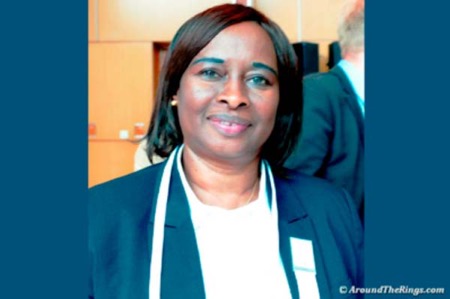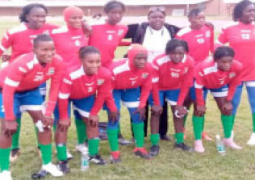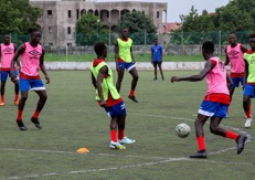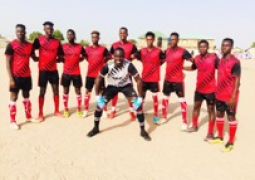
The delegates rejected Allen’s decision to proceed with her proposed agenda during the Annual General Assembly (AGM).
The drama that unfolded on 23 December 2023 has raised serious concerns about constitutional adherence and governance within the GNOC.
According to the GNOC Constitution, members were obligated to convene for their Annual General Assembly.
President Beatrice Allen's unilateral decision to cancel the AGM, viewed by the majority as unconstitutional and a violation of the Olympic Charter, prevented the meeting from taking place after she lost majority votes to proceed with her agenda.
The confrontation reached its peak when the president presided over a vote during the General Assembly.
A total of 24 members voted to amend the agenda to include proposals from fellow members, while 18 supported maintaining the presented agenda.
President Allen disregarded the majority decision, shockingly marking an unprecedented challenge to her leadership and her future in the GNOC.
The incident has exposed longstanding tensions between President Beatrice Allen and the Secretary General, who has been a vocal critic of administrative obstacles encountered within the GNOC.
The Secretary General alleged that since his election in November 2021, he had been denied access to the GNOC's official email and lacked login credentials for the organisation's online bank account.
Furthermore, he claims that the president directed the Executive Director to deny him access to running files, constituting a blatant violation of the Constitution and an abuse of authority.
Despite efforts by the delegates to prevent the president from acting against the majority's will, the session, which commenced at 10 a.m., was abruptly cancelled by President Allen around 3 p.m.
The delegates have widely condemned this as an abuse of authority, an unconstitutional act, and a poor performance by the president, potentially jeopardizing the principles of sports governance.
The ramifications of this incident are significant, not only for the GNOC but also for athlete preparations for the Olympic Games.
The inability to conduct the AGM may impact the disclosure of financial status and potentially affect the GNOC's Olympic Solidarity Grants 2024.
The uncertainty surrounding the situation raises questions about the GNOC's ability to move forward with fresh strategies and preparations for the upcoming year.
As the GNOC grapples with internal strife, the sports community anxiously awaits a resolution to ensure the NOC’s adherence to constitutional principles and the restoration of trust among its members and stakeholders.
The unprecedented resistance to the president's actions underscores the challenges faced by sports governance in The Gambia.
President of The Gambia Handball Association, Lamin King Colley, stated that the AGM or general assembly are answerable to the delegates.
‘‘We have seen agenda and some issues are not spelled out clearly,” he pointed out.
‘‘When I went to vote for the agenda, those who said the agenda should continue are the minority and the AGM was unable to continue,’’ King Colley said.
He added that without the approval of the financial reports and all other reports, it is going to be unconstitutional for the GNOC to function.
‘‘We should have listened and elaborated on all these agendas before voting because there are very important issues within the agenda points,’’ King Colley pointed out.
“We are sports administrators not for ourselves but for the athletes so that interest of the athletes would never be compromised.
‘‘An extra-ordinary congress can be called later to elect executive board for us to forge ahead,’’ King Colley said.
He urged athletes not to discourage and keep on training.
President Gambia Volleyball Association, Bai Dodou Jallow, stated that the AGM was unable to proceed because there were many activities that needed to be cleared before the AGM starts.
He stated that some nationals associations made proposals prior to the AGM but those proposals were never given due consideration.





